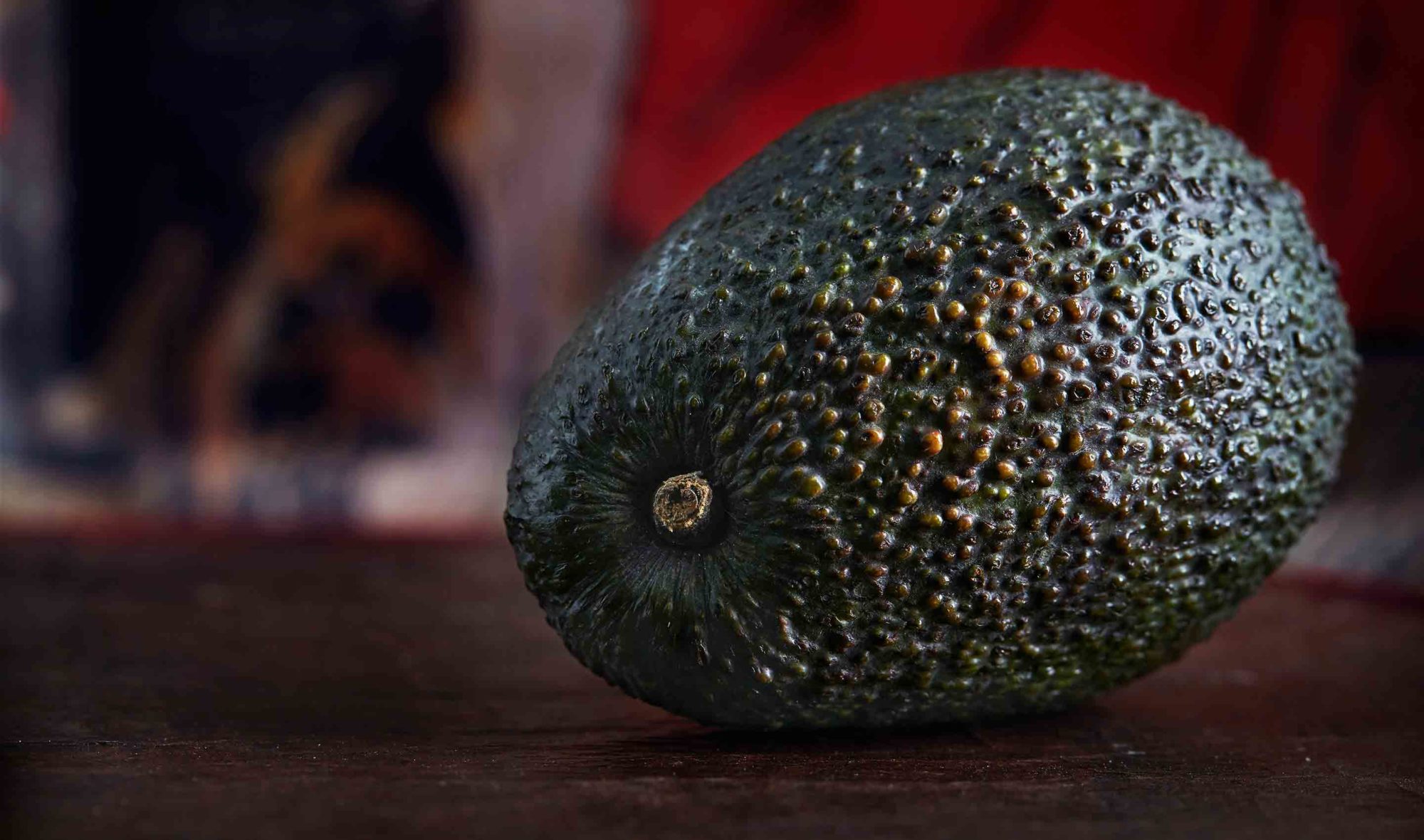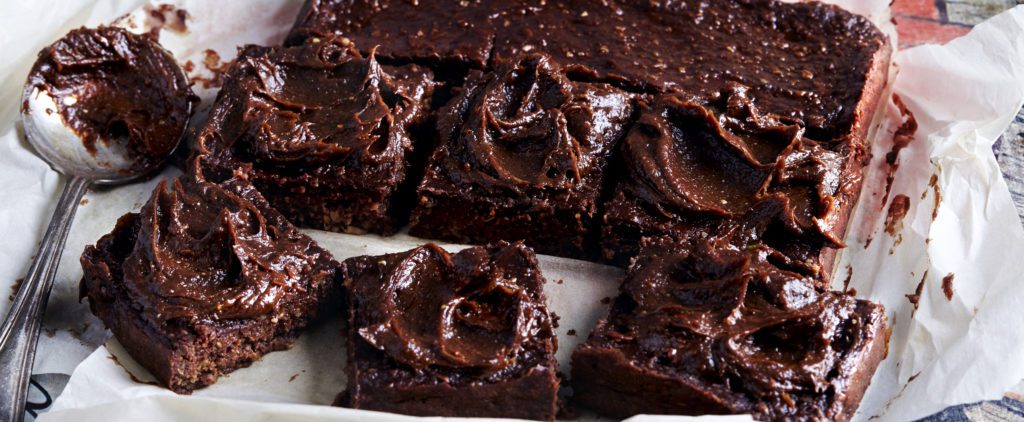
💥 SAVE 52% on the PN Nutrition Certification + Coaching Career Kickstarter Course! Ends Friday.

💥 SAVE 52% on the PN Nutrition Certification + Coaching Career Kickstarter Course!

Avocados are a savory, green fruit that have buttery flesh and a large round pit beneath thick, bumpy skin. Avocados are known for their rich flavor, creamy texture, and supply of healthy fats (not to mention a host of vitamins, minerals and fibrer). A properly ripe avocado should yield to gentle pressure; the flesh should slice or mash easily. To enjoy avocados, remove the outer skin and inner pit. The flesh is delicious with a squeeze of lemon, drizzle of olive oil, and sprinkle of salt.
The avocado is a fruit with a large single seed (pit), which grows on the avocado tree. The tree is native to Mexico and Central America, but today avocados are grown throughout the Mediterranean and in other warm climates including California and Florida. Many different cultivars exist, but Haas avocados are most commonly available and can be acquired year-round.
Avocados are generally oval and palm-sized (though they vary from small to large), with a thick, bumpy skin surrounding the flesh. The skin changes color as the fruit ripens, turning from bright green to a deeper, blacker color. The flesh inside is light to bright green, with a hard, round, brown pit in the center of the fruit.
One avocado (weighing 138g) contains 227 calories, 2.7g of protein, 21.0g of fat, 11.8g of carbohydrates, 9.2g of fiber, and 0.4g of sugar.
Avocados are also rich in magnesium, potassium, folate, vitamins K, B6, E, and C. They can also increase the absorption of other fat-soluble nutrients (such as beta-carotene) when eaten together with other fruits and vegetables.
Note: Avocados contain mono- and poly-unsaturated fats – a type of “healthy” fat, which can lower cholesterol and support heart health, if eaten in place of saturated fats. The fat content of avocados also adds to satiety and an enjoyable eating experience.
You may choose to buy avocados that are still firm and not yet ripe. To do this, simply look for firm fruit with bright skin, which stands up to gentle pressing and feels heavy for its size.
If you wish to eat the avocado the same day you buy it, aim to find one that is perfectly ripe. Ripe avocados are generally darker in color: a deeper green or blackish hue. A properly ripe avocado should have gentle give to it when lightly pressed; you should feel the flesh give way slightly but it should not cave in or feel mushy.
One tip for finding a ripe avocado: locate the dried stem (a small brown nub) at the top of the avocado. If the nub pops off with a gentle flick of the finger, the avocado is likely ripe.
Avocados should be stored at room temperature to ripen; if they are already ripe they will last one or two days at room temperature. To preserve avocados longer, store them in the refrigerator.
Once exposed to air, avocado flesh will start to oxidize and turn brown. For this reason they are best eaten shortly after being cut.
Slice the avocado in half, vertically, with a sharp knife. (The pit will prevent you from cutting all the way through the avocado). Twist and pull the two halves apart, then remove the pit.
Tip: To remove the pit, try this chef’s technique: hold the avocado half (with pit) in one hand. With the other hand, whack a sharp chef’s knife against the pit, and twist. The pit will come out attached to the knife. However, this can be intimidating for home cooks. Instead, give the pitted avocado half a gentle squeeze and if suitably ripe, the pit should easily pop out. If flesh is still attached to the pit, simply scrape it off with a spoon.
To remove the avocado flesh, you may scoop it out with a large spoon into a bowl to be mashed. If you wish to use slices or another particular cut of avocado, take a paring knife and cut the flesh into slices. (Slice again cross-wise to create a dice). Then scoop out the flesh gently with a spoon.
Avocados are usually best fresh and not cooked. Preparations are typically savory, not sweet.
To eat the avocado you have plenty of options: Guacamole (a mashed avocado dip or topping made with lemon, garlic, and sometimes tomato, onion, and chile) is probably the most famous use of avocados.
Avocados can also be sliced or diced and added to salads; mashed and used in place of mayonnaise in egg salad or tuna salad; or eaten simply on toast with a squirt of fresh lemon juice, drizzle of olive oil, and sprinkle of salt and pepper.
Note: Avocados are enjoyed around the world. For example, in Vietnamese, Filipino, and Indonesian cuisines they are blended as smoothies or milkshakes. In American-style sushi, avocado is often included in maki, such as the famous California roll. Mexican and Central American cuisine includes avocados in tacos, with rice, or as a side dish or topping for grilled meat.

These creamy avocado brownies are perfect for dessert or a special treat. They are truly delicious and best of all, they are easy to make!
Prep Time: 30 minutes Cook Time: 25 minutes Yield: 12-16 squares
Brownie Directions
Put the peeled avocado and banana into a large mixing bowl. Using a potato masher or fork, mash the avocado and banana until creamy. Next, add the remaining ingredients to the bowl and mix until very well combined.
Grease an 8” x 8” baking dish with coconut oil or cooking spray and pour the batter into the dish spreading it out evenly with a spoon.
Bake in preheated 350F oven for 20-25 minutes or until toothpick comes out clean (or almost clean if you like your brownies a little gooey).
Let cool on counter for 10 to 15 minutes before icing.
Icing Directions:
Put all ingredients into your blender or food processor and blend until very smooth. You will likely have to stop and scrape the sides with a spatula a few times. Once smooth, spread over cooled brownies.
Store brownies in fridge.
Enjoy!
Precision Nutrition’s Encyclopedia of Food expands every single month as we highlight new foods and showcase beautiful food photography. If you’d like to stay up to date, simply click this link. From there, we’ll send you a FREE copy of our recipe book. We’ll also let you know when new and delicious foods are added to the site.
Avocados are a savory, green fruit that have buttery flesh and a large round pit beneath thick, bumpy skin. Avocados are known for their rich flavor, creamy texture, and supply of healthy fats (not to mention a host of vitamins, minerals and fibrer). A properly ripe avocado should yield to gentle pressure; the flesh should slice or mash easily. To enjoy avocados, remove the outer skin and inner pit. The flesh is delicious with a squeeze of lemon, drizzle of olive oil, and sprinkle of salt.